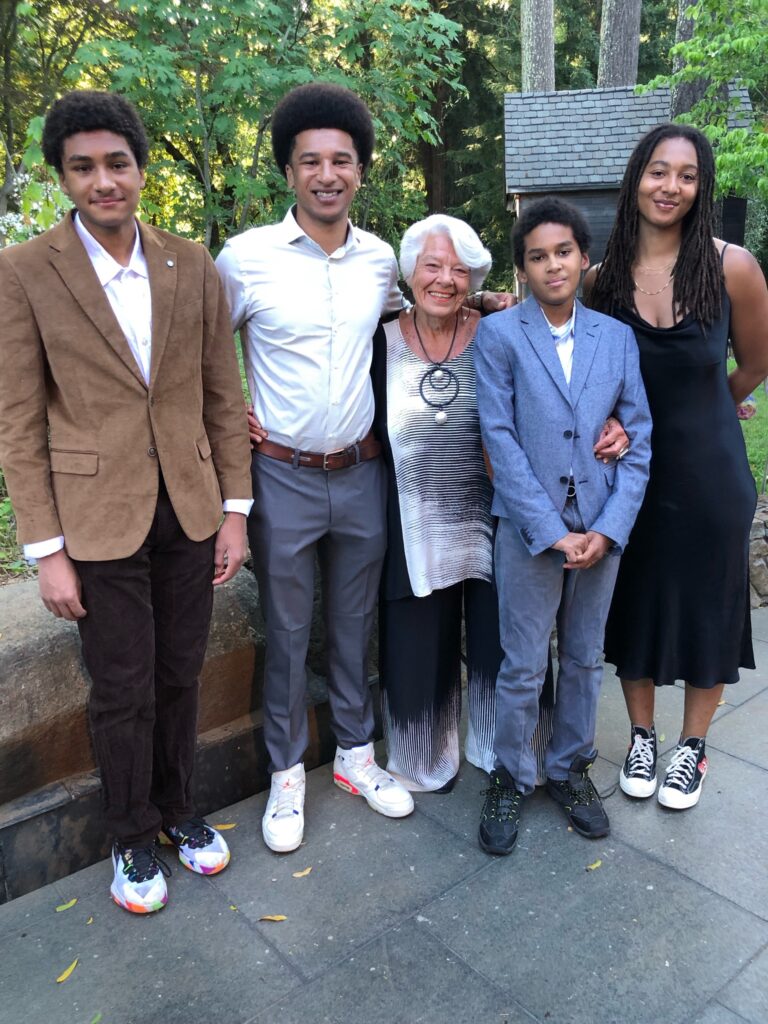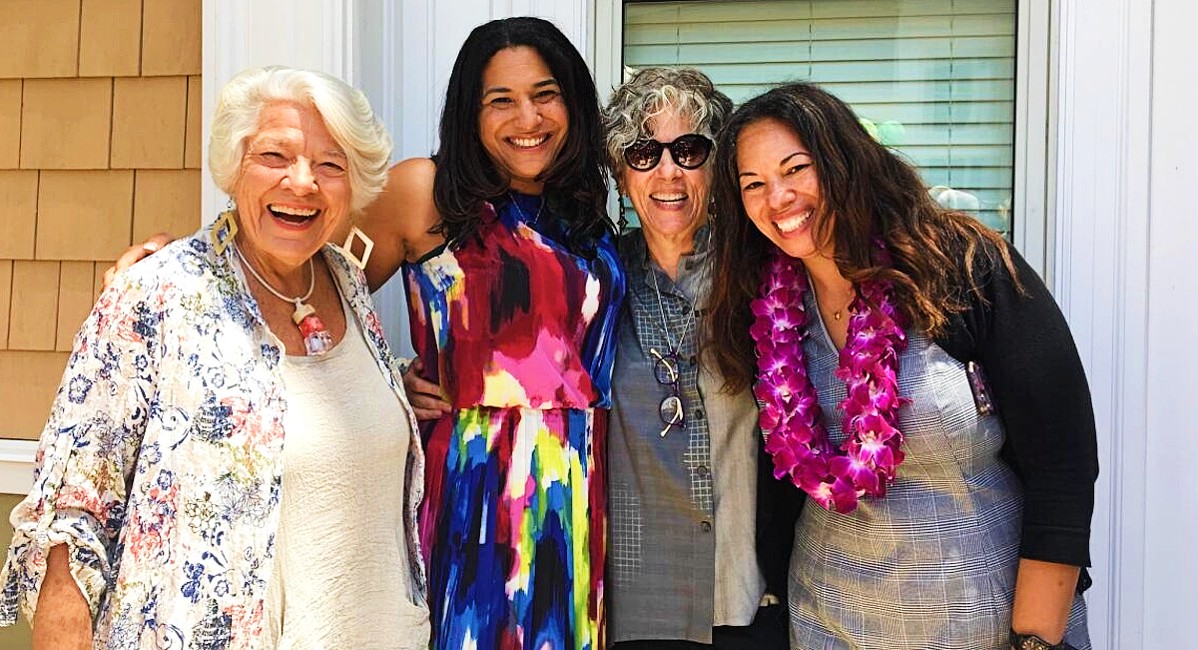Above: Margo Long (L), with her daughters Dayna and Rhonda, and her younger sister, Laurien Alexandre.
When Margo Long, a white Jewish woman in her twenties, married John, an African American man, in 1965, interracial marriage was illegal in almost half of the United States.
“That was two years before Loving vs. The Commonwealth of Virginia, the Supreme Court decision,” she recalls, sitting in front of a glass of wine in her Pasadena home 57 years later. “We were stopped all the time by cops. ‘Are you ok, mam?'” they would ask. “Why wouldn’t I be,” she would say.
Today, Long is a retired educator, 81 years old, and she takes great pride in her biracial and multicultural children and grandchildren.
“I couldn’t be a prouder matriarch,” she smiles.
Back then, Margo’s parents were just fine with her decision, but her grandfather, on her father’s side, took them out of their will. “You can’t let Margo do that,” he told his son. “I can’t tell her what to do,” he responded.
That disagreement would eventually become a life-long estrangement between Margo’s dad and his father. When hearing the news, her grandmother on her mom’s side said that if she married John and had children, “they would be striped like zebras.”
Decades later, one of Margo’s granddaughters, Nadia, 21, sees that marriage as “an act of resistance.”
“My grandparents’ act of resistance is admirable to me. I aspire to have their courage”, said Nadia Ngom, who identifies as Jewish, Muslim, African American, African, and White. Nadia’s mom Rhonda, a civil rights attorney and Margo’s daughter, married a Muslim man from Senegal, Nadia’s dad.
“When my sister married John, my grandparents moved away, as far as they could get, to Florida,” says Laurien Alexandre, Margo’s youngest sister, now 70, who has been married to two Latinos. Her current husband, Henrik, is from Argentina, as was her first husband, Gerardo.


Margo and her three siblings, descendants of European Jews, grew up in California. From industrious, mostly conservative Jewish immigrants came, a few generations later, a family that Laurien describes as: “Black-white, Jewish-Muslim-Baptist.”
“I think there was a shift from that old European tradition to my parents believing in living one’s life as you want, as long as you did it with principles,” Laurien said. “But we often laugh because aside from my grandparents, we were also disowned — sort of — by my dad’s sisters, my aunts. They thought my parents did a terrible job raising us.”
“It wasn’t only that Margo married a Black man, my brother Gordon was a communist, my sister Judy changed her religion, and I was kicked out of school for protesting the war, for protesting the dress code and organizing a radical student union… there was such a divide,” says Laurien, who is currently dean of Antioch University’s Graduate School of Leadership and Change. She was a teenager in the 1960s, a time of rebellion for many young people.
Margo and John divorced after 18 years of marriage, and he remained close to their daughters, Rhonda and Dayna. Still, Margo took it upon herself to offer her daughters any opportunity to know “that they were Black and to be raised with that consciousness.”
“I always liked to have things around that honored diversity and inclusion, not just for Black, but for everything,” Margo adds. “Also, instead of going to Hawaii, we went to Jamaica. Instead of seeing the white Santa at the mall, we went to see the Black Santa at Laimert Park (then an African American area in Los Angeles).”
Now, her daughters have children as well. Rhonda married a Muslim man from Senegal and had a boy and a girl. Dayna, an emergency room doctor, is the mother of three boys. Their father is originally from Jamaica though he grew up in London.
“My grandchildren are just gorgeous,” she says, beaming.
One tradition of this diverse family combines the Jewish celebration of Passover with a multicultural, multi-faith twist that is very much their own.
“Passover is a really historic call to action in our family, and it’s a reflection and also moving forward,” says Margo. “And it’s more political than it is religious and very inclusive.”
So instead of a celebration with a retelling of the story of the Exodus of Moses and the Israelites from Egypt, the family gathers and starts with a prayer from the Quran. Part of the readings are in Spanish, and the traditional Seder meal “is very feminist,” says Margo.
Laurien, an atheist, says that her family was “never very religious.”
“We are more cultural Jews; the last time we all went to synagogue together was when President John F. Kennedy was assassinated,” said Laurien.
The younger sister, who grew up in the 1960s and is separated from her older sister by 12 years, is defined by her husband Henrik as if “Karl Marx met Janis Joplin, and they had a baby.”
Nowadays, she often wonders what her parents would think about the family and how they could keep up and accept all the different directions their rebellious kids went. Laurien still has a letter she wrote to her parents in college, complaining about the injustices she saw in the system.
“I wish I could sit down with my parents and ask them how they could process getting letters that said, essentially, ‘Eff your capitalist patriarchy’?” she laughs. “But they stood up to their parents and let us be who we were.”
This article is part of the Love Across Colorlines series, a collaboration of 20+ ethnic media outlets looking at interracial marriage in California at a time of rising hate. Visit Love Across Colorlines to see more in the series.




